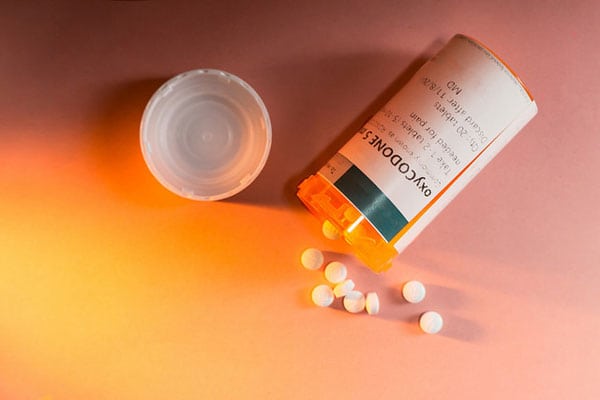
August 10, 2018; Philadelphia Inquirer
Earlier this month in NPQ, we noted that many firms named in opioid lawsuits have turned “strategically charitable.” Writing in the Philadelphia Inquirer, Catherine Dunn profiles one of these firms, AmerisourceBergen. The firm, Dunn explains, “constitutes one of the ‘Big Three’ wholesale distributors—along with McKesson and Cardinal Health.” Since 2011, its annual revenue has nearly doubled, from $80.2 billion to $153.1 billion. The company’s market capitalization is presently $18.3 billion (down from a 2015 peak of over $25 billion).
Opioids are a big issue in Pennsylvania, Dunn notes. “Last year, just in Philadelphia, 1,217 people died from a drug overdose, and the city found opioids present in 88 percent of those deaths,” she adds. As reported in the Washington Post, national preliminary figures from the Centers for Disease Control and Prevention estimate that 49,060 people died in the US from opioid-related overdoses in 2017; following only West Virginia and the District of Columbia, Pennsylvania has the nation’s third-highest level of opioid deaths at 44.1 per 100,000. (The 49,060 figure, by the way, is a new record, an increase over 2016’s record level of 42,249 deaths.)
AmerisourceBergen established the AmerisourceBergen Foundation as a public charity in 2014. In 2018, it has made $807,000 in donations for opioid-misuse and opioid-recovery initiatives.
As Dunn shows, sometimes the correlation between lawsuit filed and grant disbursed is uncanny. For example, in January, the North Carolina county of Gaston filed suit against companies in the opioid supply chain, including AmerisourceBergen. In February, Dunn writes, “Officials in the county’s town of Stanley got word—from their U.S. congressman—about a grant to help citizens dispose of opioids from their medicine cabinets. The offer was from the charity run by one of the same distributors named in the lawsuit: Chesterbrook-based AmerisourceBergen Corp.”
“Recipients, from police officers to nonprofit groups,” writes Dunn, “have welcomed the resources as a benefit to their communities and their programming. At the same time, foundation grants have set the stage for press events, social media posts, and rosy PR material with members of Congress, including those who have received contributions from the company’s political action committee, or lobbyists.”
Corporate foundation giving and corporate political donations to candidates can also be linked. Extending the Stanley case further, Dunn writes:
On April 2, a press event at Stanley’s fire department drew US Rep. Patrick McHenry, (R-NC), along with AmerisourceBergen executives. On April 16, McHenry touted the company’s “collaboration” with local communities in an AmerisourceBergen press release.
Sign up for our free newsletters
Subscribe to NPQ's newsletters to have our top stories delivered directly to your inbox.
By signing up, you agree to our privacy policy and terms of use, and to receive messages from NPQ and our partners.
That same day, filings show, AmerisourceBergen’s PAC donated $2,500 to McHenry, who as chief deputy whip holds the highest-appointed position for House Republicans. That was on top of a $2,500 donation on April 10. Outside lobbyists for AmerisourceBergen donated $9,000 to several McHenry political committees between April and June, according to filings with the Federal Election Commission.
McHenry is a Republican, but Democrats, such as Rep. Brendan Boyle of Philadelphia, have also accepted AmerisourceBergen PAC donations.
Meanwhile, lawsuits pile up. Last April, we wrote in NPQ that more than 200 lawsuits had been filed nationally against opioid producers, manufacturers and distributors. Now, Dunn reports that in Cleveland, federal Judge Dan Aaron Polster has consolidated “more than 1,000 suits from municipal governments, Native American tribes, and other entities.” In addition, there are “More than 800 complaints are lodged in local courts…state attorneys general have filed their own lawsuits against Big Pharma, and a group of 41 state attorneys general, among them Pennsylvania’s Josh Shapiro, announced a joint investigation last year.”
Earlier this month, AmerisourceBergen disclosed that “its legal bills for opioid-related lawsuits and investigations grew by $39 million last quarter, jumping to $49.5 million for the previous three quarters combined,” writes Dunn. Last year, while denying guilt, the firm “reached a $16 million settlement with West Virginia over claims that the company profited from sending excessive amounts of painkillers into the state and failed to report suspicious orders,” Dunn adds.
Greg Williams, executive vice president of the nonprofit Facing Addiction with NCADD [National Council on Alcoholism and Drug Dependence], notes that his organization chose not to apply for AmerisourceBergen foundation funds, despite being encouraged to do so. Indeed, less than two months ago, on June 25th, Williams received an email from the foundation that, Dunn writes, “commended his group’s work and outlined a program for grants up to $100,000.”
But the organization has taken a different tack: This past spring, it joined the Fed Up! Coalition to participate in an advocacy campaign called “Billions Not Millions.” As the name suggests, the coalition’s goal is to achieve a multi-billion court settlement to address the costs generated from a national epidemic that killed 42,000 in 2016.
Williams acknowledges that turning down $100,000 is not easy: “Some of these resources might even help people and save lives.… I don’t want to dismiss the intent. What we would like to say is, no matter how much corporate citizenship they try to do at this point, if it’s not tens of billions of dollars, it’s not enough.”—Steve Dubb











